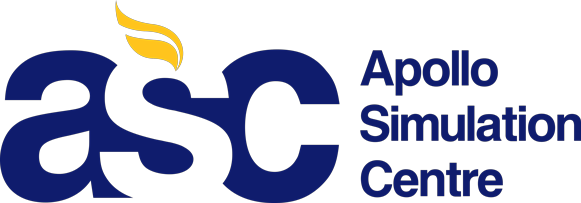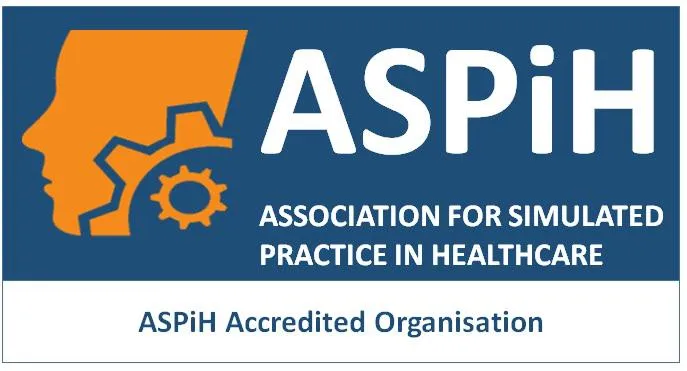
What would you do if someone collapsed in front of you, gasping for air? Would you freeze, panic, or spring into action? Every year, more than 350,000 cardiac arrests occur outside of hospitals. What if you have the skills and confidence to help save a life in such critical moments? That’s where Basic Life Support certification comes in.
BLS certification isn’t just a credential; it’s a lifeline that equips you with the knowledge and skills to respond to life-threatening emergencies effectively. Whether you’re a healthcare professional or someone who simply wants to be prepared, understanding the importance of even a BLS certification online is crucial. The need for immediate and effective response can mean the difference between life and death.
So, let’s dive into what BLS certification near me entails, why it’s essential, and how it transforms you into a critical link in the chain of survival.
What is Basic Life Support (BLS)?
Basic Life Support (BLS) refers to the level of medical care used for victims of life-threatening illnesses or injuries until they can be given full medical care at a hospital. BLS techniques include cardiopulmonary resuscitation (CPR), the use of automated external defibrillators (AEDs), and relief of choking in various age groups.
BLS is about recognizing several life-threatening emergencies, providing CPR, using an AED, and relieving choking in a safe, timely, and effective manner. This training is not only vital for healthcare professionals but also beneficial for non-medical personnel who might be first responders in an emergency.
The Core Components of BLS Training
BLS training typically covers several core components:
- CPR for Adults, Children, and Infants: Learning the differences in technique and application of CPR across different age groups.
- Use of AEDs: How to properly use an automated external defibrillator to restore a regular heart rhythm in victims of sudden cardiac arrest.
- Relief of Choking: Techniques to clear obstructed airways in adults, children, and infants.
- Team Dynamics: Understanding the roles and responsibilities during a resuscitation effort to improve the efficiency and effectiveness of the response.
Why is BLS Certification Crucial?
- Life-Saving Skills: Immediate and appropriate response to cardiac arrest can double or even triple the chances of survival. BLS training equips you with these critical skills.
- Confidence in Emergencies: With proper training, you won’t hesitate in an emergency. You’ll know exactly what to do, which increases the likelihood of a positive outcome.
- Professional Requirement: BLS certification is mandatory for many healthcare roles. It ensures that professionals are prepared to handle emergencies in clinical settings.
- Enhanced Community Safety: The more individuals trained in BLS, the safer our communities become. Trained bystanders can provide immediate assistance before professional help arrives.
What the Journey to BLS Certification Looks Like
Step 1: Enroll in a BLS Course
Start by finding an accredited BLS course. These are often offered by reputable organizations such as the Red Cross Society or the American Heart Association (AHA BLS). Ensure the course is up-to-date with the latest guidelines and practices.
Step 2: Complete the Training
Training typically involves a combination of theoretical learning and practical, hands-on practice. Expect to spend a few hours on this—usually, a BLS course can be completed in one day. You’ll learn about the chain of survival, high-quality CPR, and how to use an AED.
Step 3: Pass the Assessment
To get certified, you’ll need to pass both a written test and a practical exam where you demonstrate your skills. This ensures you not only understand the procedures but can perform them correctly under pressure.
Step 4: Receive Your Certification
Upon successful completion, you’ll receive a BLS training card, valid for two years. It’s essential to keep this certification current by renewing it before it expires.
Maintaining and Updating Your Skills
BLS techniques evolve with ongoing research and updates in medical guidelines. Therefore, regular recertification is necessary. This ensures that you stay proficient and up-to-date with the latest resuscitation science and protocols. Typically, recertification involves a shorter course that focuses on refreshing your knowledge and skills.
Who is Basic Life Support Certification For?
Who needs to know how to save a life? Everyone. But let’s break it down. If you’re a final-year student, intern, registrar, post-graduate, or practicing doctor, a BLS course isn’t just beneficial—it’s essential.
This BLS certification can come in handy in various situations.
Your ability to perform high-quality CPR, manage airway and breathing, and use an AED effectively can mean the difference between life and death BLS skills ensure you’re prepared to handle emergencies in any setting—whether at the park, on a flight, or at home.
BLS training near me empowers you to be the calm in the storm, the person others look to in a crisis. It’s not just for the healthcare professionals; it’s for anyone who wants to be ready to step up when it truly matters.
How Apollo Simulation Center Certification Can Help
Why choose Apollo Simulation Center for your BLS certification?
Because we go beyond just ticking boxes—we train you to excel.
Our blended learning course starts online with interactive lectures that break down complex resuscitation principles into manageable concepts. Then, our hands-on contact course brings you into a realistic hospital setting, where you practice chest compressions, bag-mask ventilation, and AED operation on high-fidelity manikins.
You also get the privilege of working one-on-one with expert instructors, perfecting each technique until its second nature. And it’s not just about individual skills—our training emphasizes teamwork, so you’re prepared to lead or support in multi-rescuer scenarios. By the end of the course, you won’t just know what to do; you’ll be able to perform under pressure. Plus, our certification is recognized and respected, enhancing your professional credibility and opening doors to new opportunities. With Apollo, you’re not just learning—you’re becoming a confident, competent lifesaver ready to make a real difference.
Take Your First Step Towards Confident, Decisive Emergency Response
Basic Life Support certification arms you with the essential skills to act decisively and confidently in critical moments. Whether you are a healthcare professional or someone keen on making a difference in emergencies, BLS certification is a crucial step towards readiness and responsiveness.
At Apollo Simulation Centre (ASC), we provide comprehensive BLS training that ensures you are well-equipped to handle real-life emergencies. Our state-of-the-art facilities and expert faculty make ASC the ideal place to perfect your practice and elevate your readiness to the next level.
Ready to make a life-saving difference? Enquire now and take the first step towards mastering Basic Life Support training with ASC.




